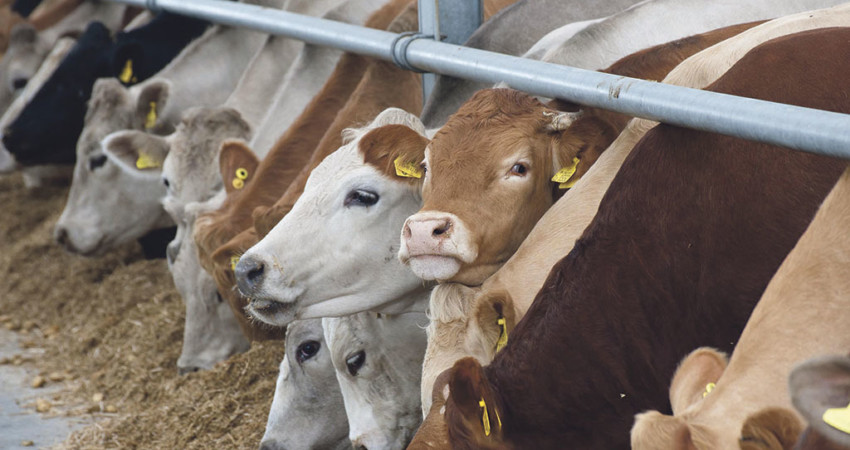

There’s no question that vitamins A, D, and E are critical components of rations for beef cattle.
Vitamin A plays a key role in maintaining healthy maintenance of eyes, skin, and the linings of the respiratory, digestive, and reproductive tracts. It’s also essential for proper functioning of the kidneys, and normal development of bones, teeth, and nerve tissue. Vitamin A comes from the carotene in green and yellow plants. Vitamin D is critical to the health of bones and the digestive tract. Animals form vitamin D when they’re exposed to sunlight.
Green leafy forages and whole grains are sources of vitamin E. While an animal’s need for vitamin E is critical, it is not well understood.
Under normal feeding conditions, vitamin deficiencies rarely occur, If a deficiency does happen, you’re likely to see it most often with vitamin A.
Early signs of deficiencies in vitamin A are night blindness, loss of appetite, rough hair coat, dull eyes, slowed gains, and reduced feed efficiency. Animals that are deficient can have lower fertility and reduced calving percentages.
Because the main source of vitamin A is the carotene found in green forage, deficiencies that do show up tend to occur in cattle on low-forage diets,” Bailey says. “Deficiencies can also happen when cattle are grazing dormant pastures or eating hay that’s been stored for a long time.
High levels of nitrate or nitrite nitrogen in the ration or water have also been found to cause a vitamin A deficiency in cattle. These compounds may have this effect by causing a greater destruction of vitamin A and carotene in the digestive tract, decreasing their absorption and interfering with the conversion of carotene to vitamin A.
Because vitamin A is stored in the liver, symptoms of a deficient daily intake may not express themselves for as long as 100 days. Rather than waiting for the telltale signs of a deficiency to signal the need for vitamin supplementation,
Shop for a moderately priced mineral-vitamin mix that supplies calcium, phosphorous, copper, zinc, selenium, manganese, magnesium, iodine, and vitamins A and E.
Monitoring supplement intake to ensure modest consumption by livestock can help reduce input costs while ensuring livestock health. Overfeeding can be prevented by following the feeding rate on the label.
Cattle consuming a diet of diverse, green forages year-round could potentially have little need for supplementation in some environments. Supplementation is simply an insurance policy to ward off possible deficiencies.
 Contact Jaguza Support
Contact Jaguza Support